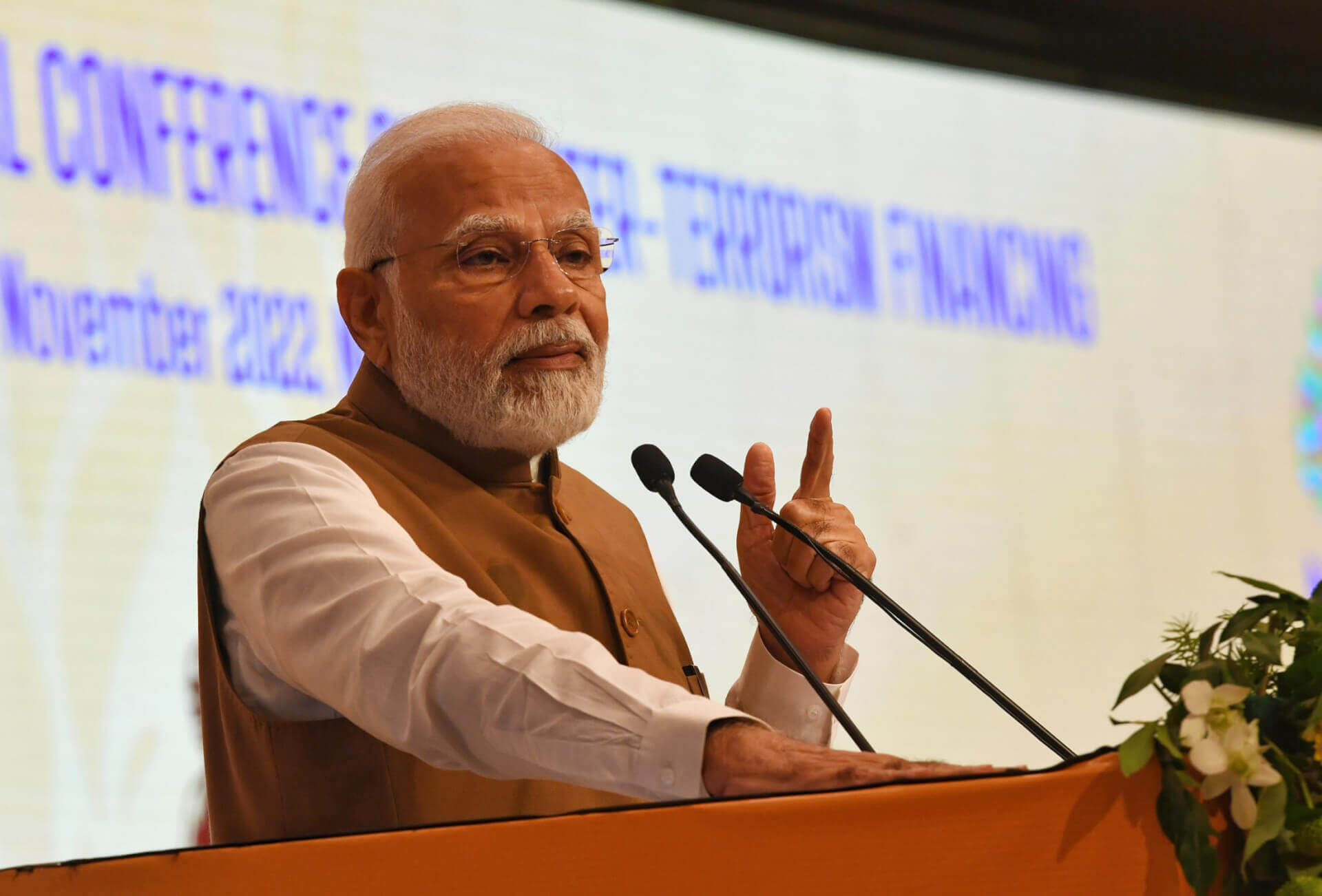Pakistan on Monday rejected Indian officials’ “incorrigible and incurable” attempts to malign its commitment to counterterrorism during the “No Money for Terror” conference in New Delhi this past weekend.
In a statement, the Pakistani Foreign Office rejected India’s “hollow rhetoric,” saying its recent removal from the Financial Action Task Force’s (FATF) grey list shows how India’s efforts have “fallen flat.”
It went on to accuse India of undertaking a “relentless terror campaign” and “state-sponsored terrorism” in Jammu and Kashmir, wherein security forces “terrorise, torment, and torture” residents with immunity.
Apart from J & K, it also accused India of “inciting terrorism” within Pakistan, claiming that its arrest of Indian naval commander Khulbushan Jadhav in Balochistan in 2016 is “undeniable proof of India’s direct involvement in sabotage and terror.”
It further claimed that India is also supporting the Pakistani Taliban.
To this end, it called on New Delhi to “reform and rectify” its own involvement in terror activities and refrain from making “false accusations” against Pakistan.
Addressing the 'No Money for Terror' Ministerial Conference on Counter-Terrorism Financing. https://t.co/M7EhOCYIxS
— Narendra Modi (@narendramodi) November 18, 2022
The statement also criticised a special anti-terror court’s decision to acquit Swami Aseemanand of all charges in the 2007 Samjhauta Express case, saying he was responsible for the deaths of 43 Pakistanis.
Similarly, the Foreign Office criticised the release of the 11 convicts in the Bilkis Bano gangrape case from the 2002 Godhra riots; all of the convicts were released this year for good behaviour.
The Pakistani statement also accused India of ‘deliberately withholding’ witnesses and evidence from Pakistani courts concerning the 26/11 Mumbai terror attacks.
Joint operations, intelligence coordination and extradition help the fight against terror. pic.twitter.com/onlZRYz9Uf
— PMO India (@PMOIndia) November 18, 2022
Pakistan’s rebuke comes in response to Indian Prime Minister (PM) Narendra Modi’s address at the third “No Money for Terror” Ministerial Conference in New Delhi last week.
At the meeting, he highlighted the importance of countering terrorism for “entire humanity.”
He added, “Be it tourism or trade, nobody likes an area that is constantly under threat. And due to this, the livelihoods of people are taken away. It is all the more important that we strike at the root of terror financing.”
In this regard, he called for a “unified and zero-tolerance” approach to terrorism, warning against an “ambiguous approach” to such a global phenomenon.
It is well known that terrorist organizations get money through several sources.
— PMO India (@PMOIndia) November 18, 2022
One source is state support. pic.twitter.com/IG7AHnttDe
Modi clarified the difference between countering terrorism and terrorists. While terrorists can be “neutralised with weapons,” the “larger strategy” must be centred around targeting the financing of terror organisations.
He argued, “Uprooting terrorism needs a larger proactive response … We must pursue terrorists, break their support networks and hit their finances.”
In a veiled dig at Pakistan, Modi raised concern about state-sponsored terrorism, asserting that certain governments have adopted terror financing as their foreign policy.
In this regard, Modi said that the international community should impose costs on countries that support terrorism and individuals.
The Indian PM further warned the international community of “proxy wars” and urged international organisations not to mistake the absence of war for peace. He highlighted the role of organised crime such as arms dealing, drug trade, and smuggling in funding terrorism.
He also called for the global approach to countering terrorism to be modified to recognise the use of “rapidly advancing technologies,” such as cryptocurrencies and the dark net in funding terrorism.
“The answer is not to demonise technology. Instead, it is to use technology to track, trace and tackle terrorism,” he emphasised
Furthermore, he stressed on the need to counter cyber terrorism, online radicalisation, the use of the internet to provide weapons training from remote locations, and other such threats in the virtual world.
Good to meet Maldives Home Minister @ShimranAb on sidelines of the ‘No Money for Terror’ Conference. His presence is an affirmation of Maldives’ principled position against terrorism. pic.twitter.com/3tErDIWWeJ
— Dr. S. Jaishankar (@DrSJaishankar) November 19, 2022
Apart from PM Modi, Indian External Affairs Minister S. Jaishankar, too, made a veiled dig at Pakistan during the two-day conference, saying, “Lashkar-e-Taiba, Jaish-e-Mohammad or Harkatul Mujahideen and their proxies thrive on assured financial support to commit barbaric acts of terror on Indian soil.”
Similarly, Indian Home Minister Amit Shah argued for the need to impose an “economic crackdown” against countries that provide a safe haven for terrorism. He proposed that India set up a Permanent Secretariat for the conference so that it remains focused on tackling such threats.
The two-day conference, from 18-19 November, saw the participation of 450 delegates from 72 countries and 15 international bodies, including the FATF.
It included sessions on ‘Global Trends in Terrorism and Terrorist Financing’, ‘Use of Formal and Informal Channels of Funds for Terrorism’, ‘Emerging Technologies and Terrorist Financing,’ and ‘International Co-operation to Address Challenges in Combating Terrorist Financing.’
The conference is an initiative launched by the French government in 2018 to target terror funding. After the first meeting in France, the conference was held in Australia in 2019. This is the first meeting since the COVID-19 pandemic.
Nigeria has been mooted as the next host of the conference in 2023.

